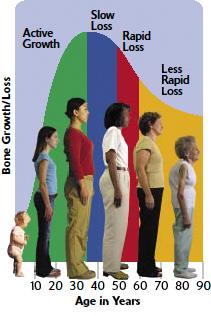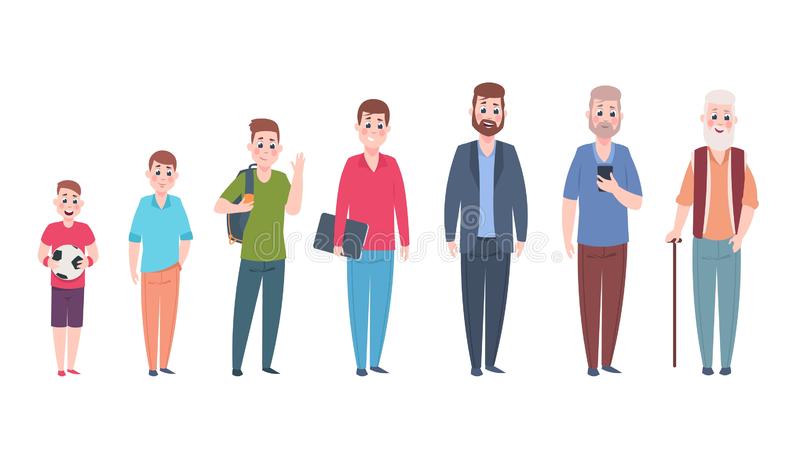Does Sexuality really changes with Aging?
It may be worth reconsidering the idea that sex ceases to be a significant factor in people’s lives when they get older. According to a 2017 national survey conducted at the University of Michigan among senior citizens, 40% of those aged 65 to 80 are still having sex. 54% of couples report having sex. Sex is still an important factor in the quality of life for 61% of the survey respondents.

However, a person’s experience of sex can change over the course of a lifetime, partly as a result of aging and partly as a result of psychological and social factors.
Physical changes in Women:
Age-related changes in sexuality generally occur after menopause, as estrogen levels decline after menopause. As women age, they may experience some of the following physical changes that may affect their sex lives:

- The vaginal walls may become thinner, stiffer, and less elastic
- The vagina itself may shorten and narrow
- Pelvic floor muscle dysfunction can be more common, and this can cause incontinence issues such as leaking urine during sex
- Orgasm intensity may decrease
- Vaginal lubrication may decrease, leading to vaginal dryness, which can make penetration painful or uncomfortable
- Sexual arousal time may increase, meaning that it takes longer for a woman to get sexually excited
It is often an effective treatment option to use synthetic estrogen (or use a vaginal estrogen) for women who are trying to reduce the effects of these physical changes. Some women who experience vaginal dryness may find it more comfortable to perform sex with over-the-counter vaginal lubricants and moisturizers. Pelvic floor therapy may also benefit women with incontinence problems.
Physical changes in Men:
Men’s sexuality can be affected by several changes that occur as they age. there is a possibility that several men may experience sexual changes ina form of desire of performance due to low level of testosterone. Following are several changes that could take plce in men:

- Erections that do not last as long as they did previously
- A decrease in the firmness and size of erections
- A longer period of time required between erections, as well as between orgasms (ejaculations)
- A higher probability of erectile dysfunction (ED), or the inability to get or maintain an erection firm enough for intercourse
- A slower sexual response time
- The loss of an erection after orgasm happening more quickly
A health care professional can offer advice to men experiencing ED, as there are many possible causes which can be treated differently. ED may be treated with medications like Viagra, Levitra, and Cialis. Other treatments may include hormonal therapy (taking synthetic testosterone), a penile pump, penile injections, or a penile implant, among others. To facilitate meaningful sexual interactions, a couple’s sexual script and style can be adjusted by a sexual therapist.
Social and Psycholoigical factor
While not as widely discussed, the psychological and social factors that affect people’s sexuality as they age are just as relevant. As sex is often associated with youth in many cultures, older individuals may be viewed as less desirable. Deficiencies in self-esteem, in turn, can negatively affect one’s performance in the bedroom.
It’s normal for your sexual desires and behaviors to change as you get older. But sex and physical intimacy remain important to many older adults. Staying sexually fit through masturbation, exploring new sexual activities, and practicing good communication may help you and your partner sexually satisfy each other. And remember, it’s important to use condoms during intercourse to help stop the spread of sexually transmitted infections. Safe sex is important, even as you get older.
Changing sexual desires and behaviors are normal as you age. However, many older adults are still interested in sex and sexual intimacy. Keep sexually fit by masturbating, trying new sexual activities, and practising good communication with your partner. Remember to use condoms during intercourse to prevent the spread of sexually transmitted infections. Sexual safety is important at any age.
Overview:
- It is normal to experience changes in sexual desire and behavior during your life cycle. You are especially likely to experience these changes as you age. Older people are stereotyped as being incapable of having sex. However, many people remain sexually active throughout their lives.
- Later in life, intimacy and connection are still important. If you’re young, it’s likely that your sexual activity will predict your interest in and activity in later years. Even if sexuality is central to your life and happiness at age 30, it will probably still be relevant at age 60. You may measure your relationship satisfaction more in terms of affection, security, and commitment than emotional fulfillment.
REFERENCES:
- https://www.healthline.com/health/healthy-sex-and-aging#takeaway
- https://www.smsna.org/patients/blog/how-sex-changes-with-age
- https://betterhealthwhileaging.net/how-sex-changes-in-aging-and-what-to-do/
- https://www.webmd.com/sex-relationships/ss/slideshow-sex-drive-changes-age
- https://www.dreamstime.com/man-character-age-stages-cartoon-people-generations-baby-young-boy-teenager-adult-mature-old-vector-life-development-cycle-image144814109
For more details, kindly visit below.